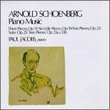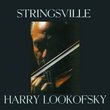| All Artists: Ludwig van Beethoven, Klaus Tennstedt, London Philharmonic Orchestra, MariAnne Haggander, Robert Tear Title: Beethoven: Symphony No. 9 "Choral" Members Wishing: 0 Total Copies: 0 Label: BBC Legends Release Date: 10/21/2003 Genre: Classical Styles: Historical Periods, Classical (c.1770-1830), Symphonies Number of Discs: 1 SwapaCD Credits: 1 UPCs: 684911413120, 684911413120 |
Search - Ludwig van Beethoven, Klaus Tennstedt, London Philharmonic Orchestra :: Beethoven: Symphony No. 9 "Choral"
 | Ludwig van Beethoven, Klaus Tennstedt, London Philharmonic Orchestra Beethoven: Symphony No. 9 "Choral" Genre: Classical |
Larger Image |
CD DetailsSimilar CDs
|
CD ReviewsAn "end of the world" view reminiscent of Furtwaengler Louis Lee | Princeton, NJ United States | 01/13/2004 (5 out of 5 stars) "Indeed, not since the good old days of Furtwaengler does a Beethoven 9th performance receive such intensity and edge. Tennstedt always tend to hold an "end-of-the-world" mentality, fearing that every performance would be his last. This particular B9 was from the 1985 Proms, three months before he was diagnosed throat cancer; and how stunning it was. It was all nervy stuff of great emotional thrust; you would not be able to find such a thumping Scherzo elsewhere. His tempi were a notch less extreme than Furtwaengler's, yet no less drama. His neurotic tension was for all to see in the first movement in particular. This recording is a valuable historical document despite its young age: a monumental recording in an age of streamlined performances typified by good old von Karajan. Tennstedt is a unique musical figure, nobody like him came before him; nobody like him will come after him. And this is a great testament to that." An exciting, authoritative Ninth, but beware the sound Santa Fe Listener | Santa Fe, NM USA | 05/10/2006 (5 out of 5 stars) "Royal Albert Hall is a cavern (basically Yankee Stadium with a roof over it) that swallows up orchestral detail. This BBC recording from Sept. 1985 can't solve the problem of tubby bass lacking in detail (the cellos sound like soup) and over-resonance, but violin tone is good, and wind soloists come through fairly well--you just have to put up with distant, echo-laden sound, not the worst thing.
In return, Tennstedt delivers a magisterial Ninth, full of excitment but with a constant sense of weight and occasion. It's like Klemperer on vitamins: forward woodwinds, no fussing over phrases, a general tendency to stay at mezzo-forte and louder. The comparison to Furtwangler doesn't seem valid to me, because Tennstedt sets a tempo and keeps to it. There is some flexibility, of course, but overall his aim is not personal expression so much as adherence to a noble musical tradition. The London Phil. plays with conviciton and brio--they make the Scherzo especially vibrant, a rare accomplishment in music with so many repeats. The opening movement is not played for as much mystery as Karajan brings to it. Tennstedt always keeps the through line in mind, pushing for momentum over nuance and not minding a bit of gruffness. At 16 min. the Adagio moves along by traditional standards, although in their recent Beethoven cycles Abbado (at 12 min.) and Rattle (at 17 min.) demonstrate how much latitude still remains over a basic issue like tempo. Tennstedt is more songful and intense than either of them, and more assured in his grip. This Adagio soars confidently from beginning to end, without Furtwangler's inwardness. The finale continues in the same authoritative, extroverted vein. The microphones are very close to the vocal soloists, who turn out to be quite good, fortunately. The wonderfully precise London Phil. Chorus sounds enthusiastic, though bluff at times, in keeping with Tennstedt's sense of open-hearted generosity. As in the ohter movements, the dynamic level is usually loud (too loud for the vocal quartet). This isn't a philosopher's Ninth, yet in its way it is as satisfying as any but the very greatest on record. " |




